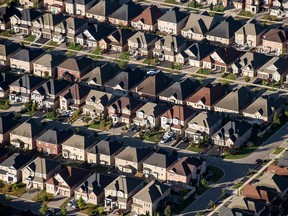Spain has announced a proposal to impose a 100% tax on non-European Union (EU) citizens purchasing homes within its borders. The move aims to combat speculative buying and protect local housing markets, but it could have significant implications for buyers from the United Kingdom and Latin America.
Prime Minister Pedro Sanchez Spoken Out:
In Madrid on Monday, Prime Minister Pedro Sanchez stated that Spain will introduce this tax as part of a broader plan to address the housing crisis. He emphasized that non-EU residents buy homes primarily for speculation rather than for living or family purposes. "This is not about taxes; it’s about ensuring fair access to housing," said Sanchez.
Broader Policy Goals:
The new policy, which has been inspired by similar measures in Denmark and Canada, is part of Spain’s efforts to stabilize its housing market. According to Sanchez, some 90,000 new homes are built annually to meet demand for 300,000 families. However, despite this, Spain remains struggling to keep up with the growing demand for housing.
Holiday Homes and Wealth Inequality:
Spain’s coastline has long been a popular destination for holiday homes, primarily purchased by British citizens. With Spain’s economy facing challenges, many wealthy individuals are turning to property investments in Spain as an alternative to other high-cost destinations. This trend has led to speculation and overvaluation of property prices, prompting the government to take action.
Impact on British and Latin American Buyers:
The proposed tax is likely to have a significant impact on buyers from the United Kingdom and countries in Latin America. For instance, many Spanish holiday homes are purchased by wealthy individuals who own multiple properties across Europe. This speculative buying could lead to market instability if left unchecked.
Proposed Measures:
In addition to imposing the 100% tax on non-EU residents, Spain is considering other measures to address the housing crisis. These include moving some of its unsold new homes from its bad debt portfolio into productive use and providing financial support for young renters. The government aims to inject 550 billion euros into the economy over the next three years to ensure sustained growth.
Madrid as a Financial Hub:
Madrid has become an increasingly attractive destination for investors, particularly from Latin America. Many Argentinians and other Spanish-speaking countries have purchased homes in Madrid for investment purposes. The city’s property market is expected to continue growing, but the proposed tax could slow this trend.
Economic Challenges:
According to a recent estimate by the Bank of Spain, the country will need approximately 550,000 new homes over the next two years to meet demand. Despite the construction of some 90,000 new homes annually, Spain is still falling short of its housing goals. The proposed tax could help address this shortfall and stabilize the market.
Commentary on the Proposal:
Some experts have criticized the proposal as overly restrictive, arguing that it could stifle investment in Spain’s real estate market. However, supporters argue that such measures are necessary to ensure long-term economic stability and prevent a housing bubble from forming.
In conclusion, Spain’s proposal to impose a 100% tax on non-EU residents purchasing homes is a bold step aimed at addressing the country’s housing crisis. While it could have significant implications for buyers across Europe, including the UK and Latin America, the government hopes that this measure will lead to a more stable and sustainable housing market in the long term.



